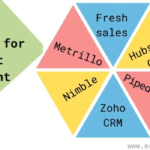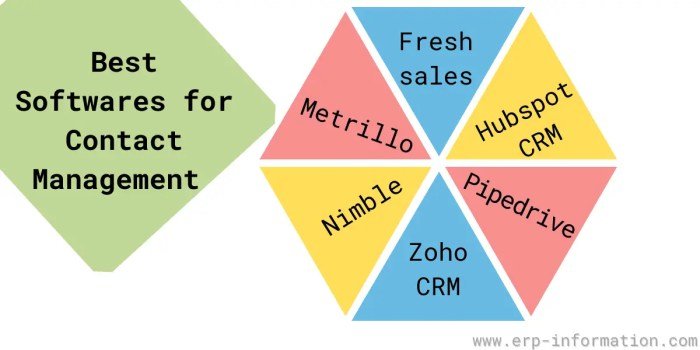Contact Management System (CMS) is more than just a digital address book; it’s the backbone of efficient communication and relationship building in today’s business world. This system helps businesses of all sizes to manage and organize their contacts effectively, fostering stronger relationships and driving growth. From its humble beginnings to its current sophisticated form, the evolution of CMS has been a fascinating journey, marked by key milestones that have transformed how we interact with our contacts.
A contact management system is essential for organizing interactions. However, the capabilities of a system can be significantly enhanced by integrating it with tools like customer database software , which provides more in-depth customer insights. Ultimately, a well-integrated system, from initial contact to detailed customer data, ensures a streamlined and effective approach to relationship management.
This comprehensive guide will explore the core functionalities of a CMS, its historical development, and the undeniable advantages it offers. We’ll delve into essential features, implementation strategies, data management best practices, and integration capabilities with other vital tools. Furthermore, we’ll examine how CMS supports sales and marketing efforts, aids in selecting the right platform, and offers advanced functionalities, including the integration of artificial intelligence. We will also differentiate between CMS and CRM, along with exploring future trends in contact management technology.
A contact management system is essential for organizing interactions. However, to elevate your business operations, consider exploring CRM software solutions , which offer more comprehensive features. These solutions streamline sales, marketing, and customer service. Ultimately, a well-implemented contact management system, enhanced by CRM principles, ensures effective client relationship management.
Introduction to Contact Management Systems

Source: erp-information.com
Contact Management Systems (CMS) are indispensable tools for businesses aiming to streamline communication and enhance customer relationships. They serve as centralized repositories for contact information, enabling efficient organization, tracking, and management of interactions. From small startups to large enterprises, the right CMS can significantly boost productivity and drive growth.
Explain the core function of a Contact Management System (CMS).
A CMS primarily functions as a digital hub for storing, organizing, and managing contact data. Its core function revolves around centralizing all contact-related information, including names, addresses, phone numbers, email addresses, and interaction histories. This centralization allows businesses to maintain accurate, up-to-date records and access them quickly. Furthermore, CMS facilitates efficient communication by enabling targeted marketing campaigns, personalized customer service, and streamlined sales processes.
Provide a brief history of CMS evolution, highlighting key milestones.
The evolution of CMS has mirrored the broader technological advancements in computing and communication. Early systems, often rudimentary databases, focused on basic contact storage. Key milestones include:
- 1980s: Introduction of early contact management software for personal computers, allowing for basic organization.
- 1990s: Emergence of more sophisticated, network-enabled systems, enabling data sharing and collaboration within teams.
- 2000s: The rise of web-based and cloud-based CMS, offering greater accessibility and scalability. Integration with CRM systems became more common.
- 2010s-Present: Increased focus on mobile accessibility, advanced analytics, and integration with social media and marketing automation platforms. The integration of AI for data analysis and personalization is also becoming more prevalent.
Identify the primary benefits of using a CMS for businesses of different sizes.
The benefits of implementing a CMS are wide-ranging and applicable to businesses of all sizes:
- For Small Businesses: A CMS helps organize contacts, track leads, and manage customer interactions efficiently. It provides a cost-effective solution for building customer relationships and improving sales.
- For Medium-Sized Businesses: CMS streamlines communication, enhances team collaboration, and improves marketing efforts. It enables better customer segmentation and targeted campaigns.
- For Large Enterprises: A CMS provides a centralized, scalable solution for managing vast amounts of contact data. It facilitates complex workflows, advanced analytics, and integration with other enterprise systems.
